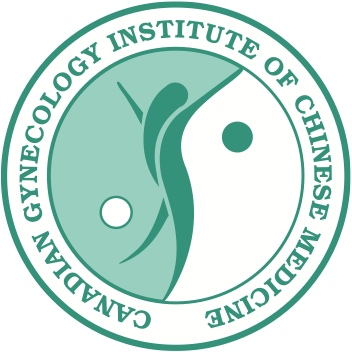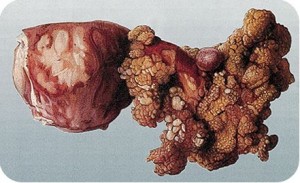Ovarian cancer is one of the cancers with a high mortality rate, as it generally presents with no symptoms until later in the progression of the disease, which limits the effectiveness of any type of therapy. Women with a family history of ovarian cancer or those with a personal history of breast cancer are at increased risk and should regularly see their doctor for screening.
Clinical Symptoms
Development of a mass is the most common indicator. It is often beside the uterus with an evident margin or mobility. This generally presents with abdominal pain and distention, lumbago, pressure symptoms, pain symptoms and menstrual disturbances. It should be noted though, that not all ovarian masses are malignant, some are benign. A loose rule of thumb states that masses that develop in women under the age of 35 are benign, while those that develop in women over the age of 35 tend to be malignant.
Clinical Exams
Other than a physical exam indicating a mass, a doctor may also perform a cytological exam, biopsy, ultrasound, radiological exam, or abdominoscopy. These can help give information about the cancer as well as whether it is malignant or benign.
Differential Diagnosis
Abdominal masses are not always tumors. A benign mass should be differentiated from malignancy, ovarian cysts, hysteromyoma, gravid uterus and ascites. A malignant mass should be differentiated from endometriosis, inflammation of the pelvic tissues, tuberculous peritonitis, tumors outside the birth canal or metastatic ovarian tumors.
Ovarian Cancer According to TCM
| Differentiation | Cancer Symptoms | Other Symptoms | Herbs |
| Qi & Blood Stagnation | Cystic mass in lower abdomen; abdominal distention and pain | Dull complexion, spiritual lassitude, dry mouth without desire to drink, dry lips, unsmooth urination and defecation, purplish tongue, taut and thin pulse | Xue Fu Zhu Yu Tang + Qi Zhi Xiang Fu Wan |
| Phlegm Damp Coagulation | Excess leukorrhagia | Obesity, chest and epigastric oppression and pain, occasional nausea, leukorrhagia, white and greasy tongue coating, taut and slippery pulse | Hao Zao Yu Hu Tang |
| Stagnation of Virulent Damp Heat | Lower abdominal mass, abdominal distention, pain or fullness, irregular vaginal bleeding | May have ascites, dry stool, yellow urine, burning urination, dry mouth with no desire to drink, bitter taste in mouth, deep red tongue with thick and greasy coating, slippery taut/rapid pulse | Qing Re Li Shi Jie Du Tang |
Caroline Prodoehl, D. Ac.
References:
Zhu, Annie Yawen (2011). Integrated Treatments: Internal Medicine Course. Toronto School of Traditional Chinese Medicine. Toronto, Ontario.

